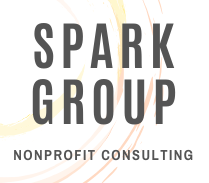4 Tips for Achieving Your Goals
January is a great time to talk about goals. We’ve shared some posts previously on goal setting; now we want to talk about what to do after the goals are set. You may be wondering, “What can I do to make sure my goals are met?” Below are four tips for achieving your goals.
Don’t set unrealistic goals in the first place
Has this ever happened to you before? January rolls around, and with all the talk of new year's resolutions, you get hyped! “Let’s dream big!” you think. Of course, there is nothing inherently wrong with having big dreams! But then by the time the calendar changes to February, the hype has dissipated, the shininess of the new year has rubbed off, you realize how far you have to go, and despondency sets in. Thinking about everything you’ve set out to achieve gets your head spinning in all directions with all the different priorities.
When I feel this way, I do three things.
✅ I make a list of everything that’s on my plate and then decide what I want to tackle today.
✅ I do some meditative breathing to slow down.
✅ I set aside one hour for proactive thinking before I do any reactive work.
A good way to prevent all this from happening in the first place is to take a careful look at your big dreams and decide what smaller steps are more realistic and achievable to set up as your goals. This way, you don’t have to cast your big dreams totally by the wayside. But if you set your goals with a critical eye as to what you can realistically hope to achieve within a given time frame, it’s easier to stay motivated and achieve your goals. In the world of consultancy, we call these SMART goals: Goals that are Specific, Measurable, Attainable, Relevant, and Time-Bound. (You can read more about SMART goals here.)
Keep your goals in front of you
Literally. Write your goals on a piece of paper, and hang them somewhere where you’ll see them often. My colleague shared this funny story on social media this week.
Taped to the shelf by my desk is a sheet of paper that I often whack when I get excited and start gesticulating widely during meetings or webinars.
I can hear you thinking, "Why don't you just move the paper!? That's clearly a papercut waiting to happen!"
I keep that sheet is paper nearby because it holds my annual goals for this year and I want the constant reminder of what I'm trying to accomplish.
I've found it useful several times when evaluating a new opportunity or when I need an extra push for motivation.
Your goals shouldn't be stuffy reports kept in digital drives until you need to apply for some kind of funding opportunity. They should be in your face and at hand in order to serve as a constant reminder of what you want to accomplish!
Celebrate small wins
Goal 3 goes hand in hand with Goal 1. Another way to fight off despondency is to celebrate those small wins and small steps you experience along the way. Because really, those steps are not that small! They are important, critical pieces in a larger tapestry of impact.
Think about the past couple of years. Likely you’ve tried to launch programs over the past two years that experienced significant delays. Maybe you even tried to undergo a capital improvement project and ran across the same issue. The pandemic continued to put roadblocks in place for our work and daily living.
And yet, you’ve hung in there.
We are nonprofit leaders. Which means we are resilient warriors. We found ways to adapt, and we’ll do it again. That is worth celebrating.
⭐Keep up the great work!⭐
Find an accountability partner
A very practical piece of advice is to find someone else — a colleague, friend, or even family member — who has also set goals for themselves or their organization. Then set up a schedule of brief meetings, phone calls, or even texts to check in with each other from time to time. That way you have that added bit of external motivation to help you achieve your goals, and you are helping that other person achieve theirs.
Another source of external support toward your goal achievement could be a mentor, a fellow member of a nonprofit leadership cohort, or even a consultant!
Interested in hearing more about how a consultant can help? Reach out to us at Spark Group today!
—
Want more great advice for the busy nonprofit leader? If you haven’t already, sign up to receive the ‘Nonprofit Spark’ weekly newsletter for exclusive tips, tools, grant opportunities, and resources — sent directly to your inbox! Subscribe to our mailing list on the Spark Group Consulting homepage.




